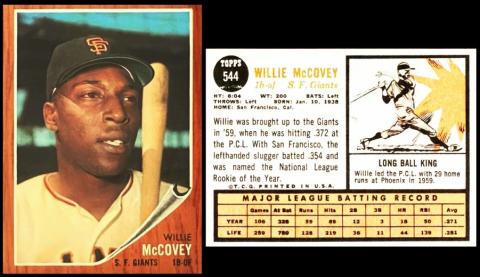
Finally we have a baseball player who Charles M. Schultz, the creator of the Peanuts comic strip, freely admitted was one of his two favourite players - the other was Willie Mays, and both these players were associated with the San Francisco Giants.
We cannot speak of Charlie Brown without speaking of baseball. He would dearly like to be a combination of the best player of all time and the best manager of the best team of all time, but unfortunately his team consists of not just his friends, but friends who are not that concerned with the sport.
We are also told that his love of the game extends to his collection of baseball cards, and, in one episode, he is desperate for a card of his idol, named as Joe Shlabotnik. Of course, one of his friends, Lucy, has just that one card, but will she swop it, no. He offers her all kinds of cards, cites the names of real players, and in the end he offers every card he owns, but she is adamant that she must keep the card he so covets. In the end, he gives up, and, walks off, and, out of his sight, she throws the card in a bin.
Joe Shlabotnik is mentioned several times throughout the life of the comic strip, but we are no closer to knowing who he was based on. We know that Charles Schultz was a fan of the San Francisco Giants, and one of his two favourite players appears in our card today. The other was Willie Mays, who we have featured before.
Willie McCovey was born on January 10, 1938, in Mobile, Alabama, the seventh child in the family, and there would be three more after him.
His first major league appearance, which was with the San Francisco Giants, came in July 1959. Later he would move, to the San Diego Padres and then the Oakland Athletics. And despite the fact that he retired in 1980, before many of today`s power hitters were born, and that he played left handed, he still appears twentieth on the all time home run records list - and if we only include the left handers, he comes second, beaten only by "Babe" Ruth.
And, coincidentally, cards 135 to 144 in this set showcase Mr. Ruth.
This set is still "Trade", because the packets, which cost five cents, included a stick of gum, five cards like the one we show today, and one "stamp" card - which seem not to be recorded anywhere, though they were definitely a trade issue.
